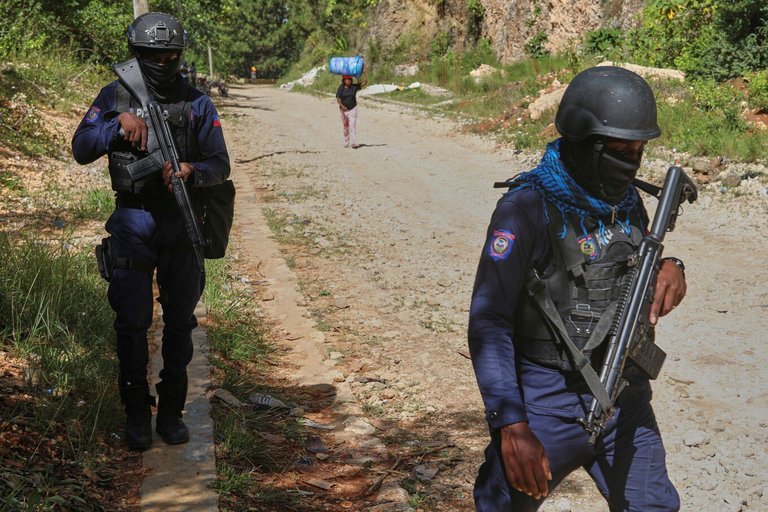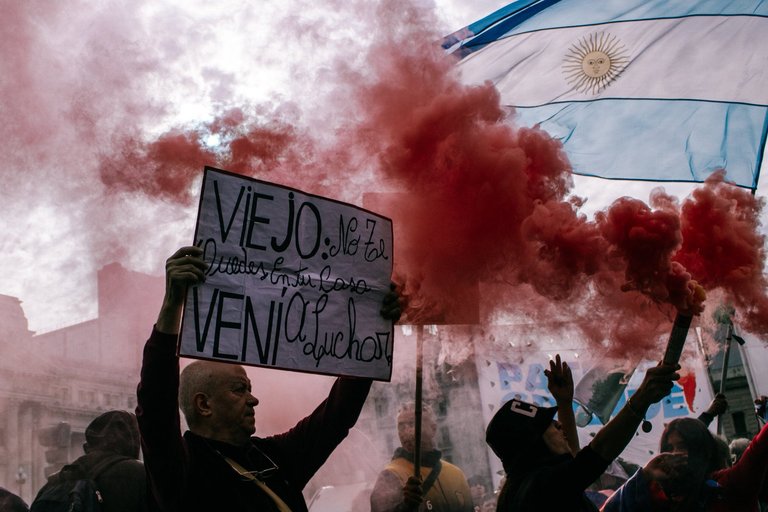The Latin American Report # 564

Haiti
The skies over this Caribbean nation have darkened again following a new surge in violence attributed to gangs controlling nine out of every ten square meters of Port-au-Prince. While an initial major alarm signal was the kidnapping of eight people from an orphanage—including its Irish female director and a 3-year-old child, all of them still missing—, the situation worsened in recent hours because of the inauguration of the new president of the weak Presidential Transitional Council. The body has attempted, with limited success, to function as the state authority with diplomatic support from CARICOM, Western powers like the United States and France, and the UN. In this context, a Kenya-led multinational security mission, largely financially backed by Washington, has failed to consistently improve the prevailing climate of insecurity in a nation thirsty for peace, food, and political stability.
The problem with the new leadership rotation in the council is that its new leader will be Laurent Saint-Cyr, a local mogul representing private sector interests there, as does Alix Didier Fils-Aimé, who will serve as the new Prime Minister. The former was president of the Haitian chapter of the American Chamber of Commerce and the national Chamber of Commerce and Industry, while Didier Fils-Aimé also led the latter and was CEO of a local internet company. The notoriously infamous gang leader Jimmy Chérizier, alias Barbecue, invoking a nationalist and anti-elite spirit, has ordered the country to be turned upside down—a capability that, through the gang coalition known as Viv Ansanm, he activates whenever he simply pleases.
"People of Haiti, take care of yourselves and help us...in the battle to free the country," he said in a social media video, instructing citizens to ensure the free passage of his troops to the seat of the government. Thus, AP reports that the streets of the capital were quieter than usual, while gunfire was heard since pre-dawn hours. "Those of you in [Port-au-Prince], you will hear gunshots both ahead of you and behind you. Remain on guard!" it was stated in another gang message. The outlet Tripotay Lakay reported that a woman was killed while riding, and in Kenscoff, a once peaceful agricultural area where the attacked orphanage is located, the Kenya-led force lost two armored vehicles when besieged by gangs this very Thursday.
 Source
SourceArgentina
Journalistic coverage of Argentina's economic reality has resumed in major news agencies these days. This wire from Spain's EFE zooms in on the issue of job insecurity, which we have covered in recent reports. The situation embodies a dynamic where even professionals in highly skilled positions requiring university degrees are forced to seek a second job to make ends meet. A report by the National Institute of Statistics and Census indicates that by the end of the first quarter of this year, almost two out of every ten Argentines classified as economically active were seeking a second job.
The case of a retiree who rents out his house and also works as a taxi driver is paradigmatic. "As the economy deteriorated, I gradually increased my working hours until I ended up going out seven days a week," he told EFE, also complaining about how the state no longer covers the 100% of his medication expenses in a context where minimum pensions—which we discussed in detail yesterday—have lost over 30% of their value. But there is also the case of a female master's degree holder, nearing 50, who must supplement her income as a public employee with freelance assignments, or that of another 32-year-old female civil servant whose salary has halved since Milei entered Balcarce 50. She has had to both transport passengers in her car and manage social media accounts. "My state salary doesn't even cover rent and utilities. Having two jobs allows me to maintain relatively low debt levels. I use my credit card for everyday expenses from the 20th of each month," acknowledges.
We are talking here about representatives of the famous Argentine middle class, although the conservative leader warned that belt-tightening was necessary to later grow organically. For his part, a Doctor of Biological Sciences in the city of Córdoba also works as a taxi driver, revealing that he had to activate this second option when, late last year, he began going into debt to buy food. All this can indeed be seen as a matter of resilience, but it still entails a significant decline in people's quality of life. "I drive the car to make up for [what I have lost in terms of income], but I don't reach it. I work eight hours for the [renowned National Scientific and Technical Research Council] and carry passengers for three to four hours a day, plus full days on weekends," the researcher stated. The salary erosion in this sector since La Libertad Avanza has been governing Argentina amounts to 40%.
An expert who spoke with EFE estimates 183,000 jobs lost since then. The government is facing a Congress where Peronism is flexing some muscle to push through legislation that resonates with this state of affairs, but which the Pink House will veto if it implies any deviation from its zero fiscal deficit policy.
 Source
SourceBrazil
The drama surrounding the Bolsonaro case, which now includes the house arrest ordered since Tuesday by the controversial Supreme Court Judge Alexandre de Moraes, continues to escalate and grab headlines. In recent hours, the spotlight has turned to Congress, where the Bolsonarist caucus boycotted sessions in both chambers for hours. The protest was very graphic, with legislators covering their mouths with adhesive tape, alluding to the censoring character they attribute to Moraes, also known for his legal battles against Elon Musk's X related to disinformation. In this regard, the president of the upper house, Davi Alcolumbre, called a remote session for this Thursday, stating he will not accept intimidation or actions seeking to torpedo the legislative process. His counterpart in the lower chamber, Hugo Motta, managed to regain control of it in the late hours of yesterday, Wednesday, after a full day of opposition blockade.
"The opposition has every right to demonstrate, the opposition has every right to express its will (...), but all of this must be done respecting our regulations, respecting our Constitution. We will not allow acts like those that have occurred (...) to be more important than the plenary and the will of this Chamber," said Motta, who, like Alcolumbre, is seen as an actor close to Planalto. The opposition wants to force the consideration of a set of bills, including a controversial amnesty for all those already convicted in the coup plot.
The so-called "peace package" also includes another bill that, if approved, would remove the Washington-sanctioned top judge, Moraes, while other initiatives aim to end the immunity that currently protects legislators and former presidents from being tried in lower courts. In recent hours, senators from the Liberal Party led by the former Army captain announced they had gathered the necessary signatures to request consideration of the bill to remove Moraes, after securing the support of 41 members of the chamber, although its president still has the final say here.
Senado retoma atividade após fim de obstrução; assista #BastidoresCNN pic.twitter.com/azNdSD9b3R
— CNN Brasil (@CNNBrasil) August 7, 2025
And this is all for today's report.

Posted Using INLEO
Keeping civilians dependent on institutions for their security will always fail to provide security to civilians. Armed individuals are the only security the individuals can depend on, and Washington isn't going to arm Haitian women and children, which is the only thing that can keep them safe, because Washington is the primary threat to their safety.
BBQ talks like he's intent on doing that arming of the civilians - but, of course, he's not, and is no better than his peers, the other hierarchies vying for control of the civilians - but he's not arming them either. Whoever arms the women and children will actually enable them to have security. Whoever provides them means to grow food will enable them to have it. That is how Haiti can become a free, prosperous country instead of a source of profitable victims for external or internal slavers.
Corporations are seeking profits for their investors. Wagies working for corporations and institutions are able to be a source of increasing profits to those investors when their salaries are cut. The solution to this vulnerability to hierarchies is to not work for a hierarchy, but for yourself producing goods and services to the market, because then the producer retains the profits. Argentina proves this principle because of Milei's dedication to eliminating the financial losses of government, making it similar to a private corporation in this respect. If you work for yourself, no one can cut your income but you.
All of the examples you provide of people taking side hustles to improve their financial situations show that they are doing this.
Thanks!
Hello, my friend. The Haitian crisis is highly complex. Now I’m thinking about how certain initiatives that initially seem aligned with what we’ve long discussed—i.e., people preparing and acquiring the means, or more plainly, weapons, to defend themselves—have later devolved into criminal organizations just as harmful, if not worse, than the threats they sought to counter. For example, I’m reminded of the so-called self-defense groups that have emerged in Haiti itself and other countries like Colombia, where collectives of citizens, fed up with the inability of official security forces, have adopted their own structures and measures to respond to threats to their safety. Though I believe your suggestion, broadly speaking, has always been that each individual should have unrestricted access to the means to overcome the inherent vulnerability of being unarmed in a ruthless world. I surely believe this is a great deterrent factor.
Yet In Ecuador, former President Lasso relaxed regulations on this issue, but seemingly without much success (at the same time, could this kind of initiative increase the legal supply channels for criminals?). Related to this, I also reflect on something that has been pointed out in this matter: even if we are armed, criminals still have the advantage of the "surprise factor." In Haiti’s case, I think the constitution at least permits armed self-defense within the home, if not carrying weapons publicly—though, in a controversial move, authorities there like to impose a ban when security tensions rise go, so people are prohibited from carrying weapons precisely when they seem to need them most.
Regarding Argentina, I agree with your perspective. As always, thank you for your insightful feedback, my friend.
It is sometimes not enough to have authority to be armed recognized by government. The poor often can barely afford food, and fine weapons are far too expensive. This is why I lament the women and children of Haiti aren't being armed by governments that can afford it. Clearly sending in some troops isn't working.
It is true that communities that are unable to count on some government or other will often simply band together to provide their security, and since this is how governments are created, they can become a gang, or government, whichever term you prefer. They're the same thing in practice.
It is always good to have your perspective on matters. You are encyclopedic regarding the Americas, and I always benefit from your posts.
You are being too generous, saying I am encyclopedic on this, but I try to give my best. Thanks always for your kind feedback, my friend.